Youth and Digital Technology in Central Asia: A Comparative Analysis of Uzbekistan, Kazakhstan, Kyrgyzstan, and Tajikistan
By Farrukh Irnazarov
Central Asia-Caucasus Institute & Silk Road Studies Program
Silk Road Paper
December 2025
Click Here to Download
Executive Summary:
 Central Asian youth between the ages of 15 and 29 are driving the region’s digital transformation, though opportunities are unequal across the region. This comparative study of Kazakhstan, Kyrgyzstan, Tajikistan, and Uzbekistan draws on a 468-respondent youth survey and extensive secondary data to map five dimensions of the online landscape.
Central Asian youth between the ages of 15 and 29 are driving the region’s digital transformation, though opportunities are unequal across the region. This comparative study of Kazakhstan, Kyrgyzstan, Tajikistan, and Uzbekistan draws on a 468-respondent youth survey and extensive secondary data to map five dimensions of the online landscape.
Access and Devices. Mobile internet has eclipsed all other channels: Kazakhstan, Kyrgyzstan, and Uzbekistan report 89 to 93 percent general adoption rate, while Tajikistan lags at 57 percent. Registered mobile service lines exceed population numbers in every country—reaching 159 percent in Kyrgyzstan—indicating that smartphones are the primary tool for study, work, and leisure.
Platforms and Culture. Telegram is the region’s primary newswire, while Instagram and YouTube shape identity and TikTok dominates leisure time. √ now trails social media as the main news source for Central Asian youth.
Socio-Economic Payoff. Digital skills open doors to remote work and start-ups — Kazakh ventures drew $71 million in venture capital and Uzbek ventures drew $17 million in 2024 — yet rural youth still face slow service and limited access to devices, widening the divide.
Literacy Gap. Nine in ten youths say accuracy matters, but barely half fact-check routinely, leaving them exposed to propaganda and fake news, despite growing efforts by non-governmental organizations (NGOs) to provide education on the topic.
Structural Limits. Cheap mobile data masks deeper barriers: expensive fixed broadband, patchy rural coverage, and renewed censorship hamper innovation and voice.
Country Snapshots. Kazakhstan leads the region in digital infrastructure, but risks repeat shutdowns; Uzbekistan saw growth after 2016 yet still grapples with red tape; Kyrgyzstan’s once-vibrant online sphere is tightening; and Tajikistan remains the most constrained.
What Works. The priorities are clear: complete last-mile broadband infrastructure, support an open and free internet, embed media-savvy curricula into education, and streamline start-up regulation and funding—especially for young women and rural creators. Achieving these goals will turn today’s mobile-native generation into the region’s next growth engine.
The Rise of the Organization of Turkic States: Is Turkic Cooperation Filling a Geopolitical Vacuum?
By Svante E. Cornell
Central Asia-Caucasus Institute & Silk Road Studies Program
Silk Road Paper
December 2025
Click Here to Download
Executive Summary:
In October 2025, the Organization of Turkic States (OTS) convened a pivotal summit in Gabala, Azerbaijan, demonstrating its emergence as a significant geopolitical entity on the Eurasian landscape. During the summit, Azerbaijani President Ilham Aliyev emphasized the OTS's evolution into a key geopolitical center, while Kazakh President Kassym-Jomart Tokayev referred to it as an authoritative structure uniting Turkic populations. This gathering marks a critical juncture in the organization’s development, solidifying its influence in a region that links the Mediterranean to Central Asia.
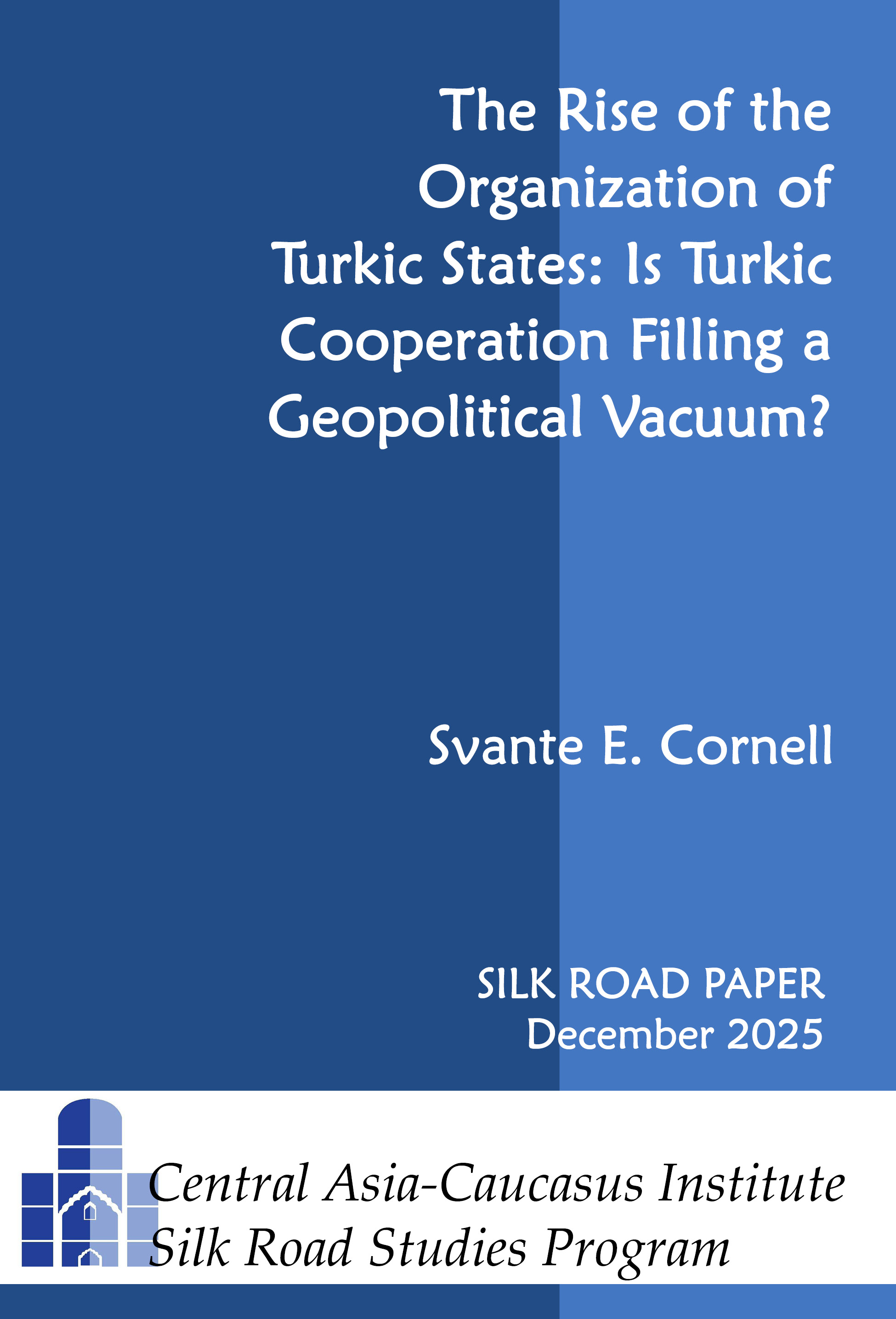
The Gabala summit showcased the OTS's commitment to enhancing collaboration on various fronts, including security, defense, economic development, transportation, digitalization, and sustainable energy. A notable development was the introduction of the "OTS plus" framework, which aims to strengthen partnerships with non-Turkic states in the vicinity. This evolution reflects a remarkable transformation for Turkic cooperation, escalating from modest aspirations to a robust international organization in a remarkably short period.
The emergence and rapid development of the OTS challenge conventional frameworks employed by Western bureaucracies to assess the geopolitics of the region. Typically categorized into rigid geographic divisions, bureaucracies covering the Middle East, Europe, and Central Asia often overlook the intricate relationships across these boundaries. Turkic cooperation ignores these geographic categorizations, as it not only resides within the context of former Soviet republics but also includes Turkey—a pivotal player straddling both Europe and the Middle East.
A key element of Turkic Cooperation is the relatively equal standing of its members. While Türkiye is obviously considerably larger than the other members, it is telling that the main drivers of Turkic cooperation for many years were Kazakhstan and Azerbaijan; and that Turkic cooperation really took off following Uzbekistan’s renewed enthusiasm for the initiative. In other words, the perception of the OTS as somehow beholden to Turkish President Erdogan is a red herring.
The ethnolinguistic character of Turkic cooperation has led many observers to remain skeptical, as it has led to the exclusion of non-Turkic states. Yet on a practical level, the OTS has displayed an openness to cooperate with countries like Georgia; more recently, the inclusion of an “OTS plus” format could create conditions for a more inclusive approach to regional states that are not majority Turkic.
Given the current geopolitical climate, the rise of the OTS is poised to reshape power dynamics across a broad expanse of territory, prompting a reevaluation of strategic frameworks by Western governments and multilateral organizations. Understanding the implications of the OTS's evolution will be crucial for policymakers and stakeholders engaged in the region and beyond.
CACI & SRSP co-hosted the Inaugural Central Asia-Nordic Think Tank Forum with the International Institute for Central Asia in Tashkent
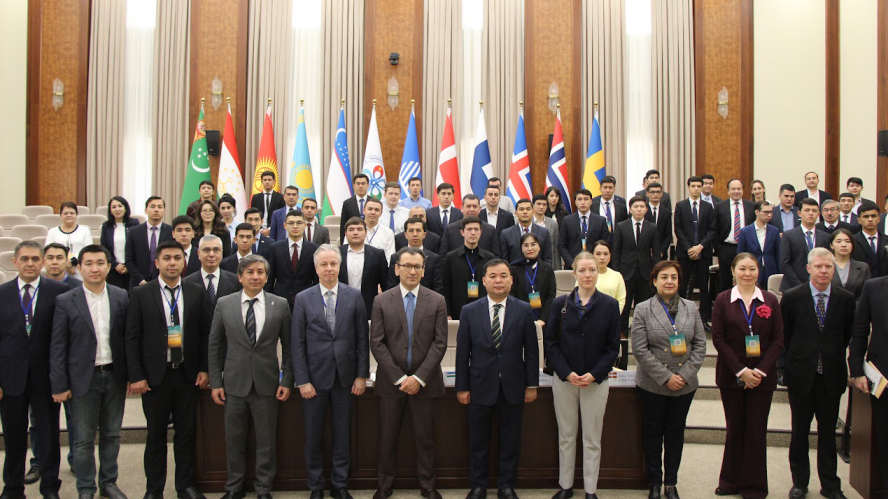
November 26, 2025: CACI & SRSP were honored to co-host the Inaugural Central Asia-Nordic Think Tank Forum with the International Institute for Central Asia in Tashkent, Uzbekistan. The Forum, following up on a May 2025 seminar hosted by ISDP in Stockholm that brought together Nordic and Central Asian experts, seeks to be a driving force in developing closer ties between the Nordic countries and the Central Asian region.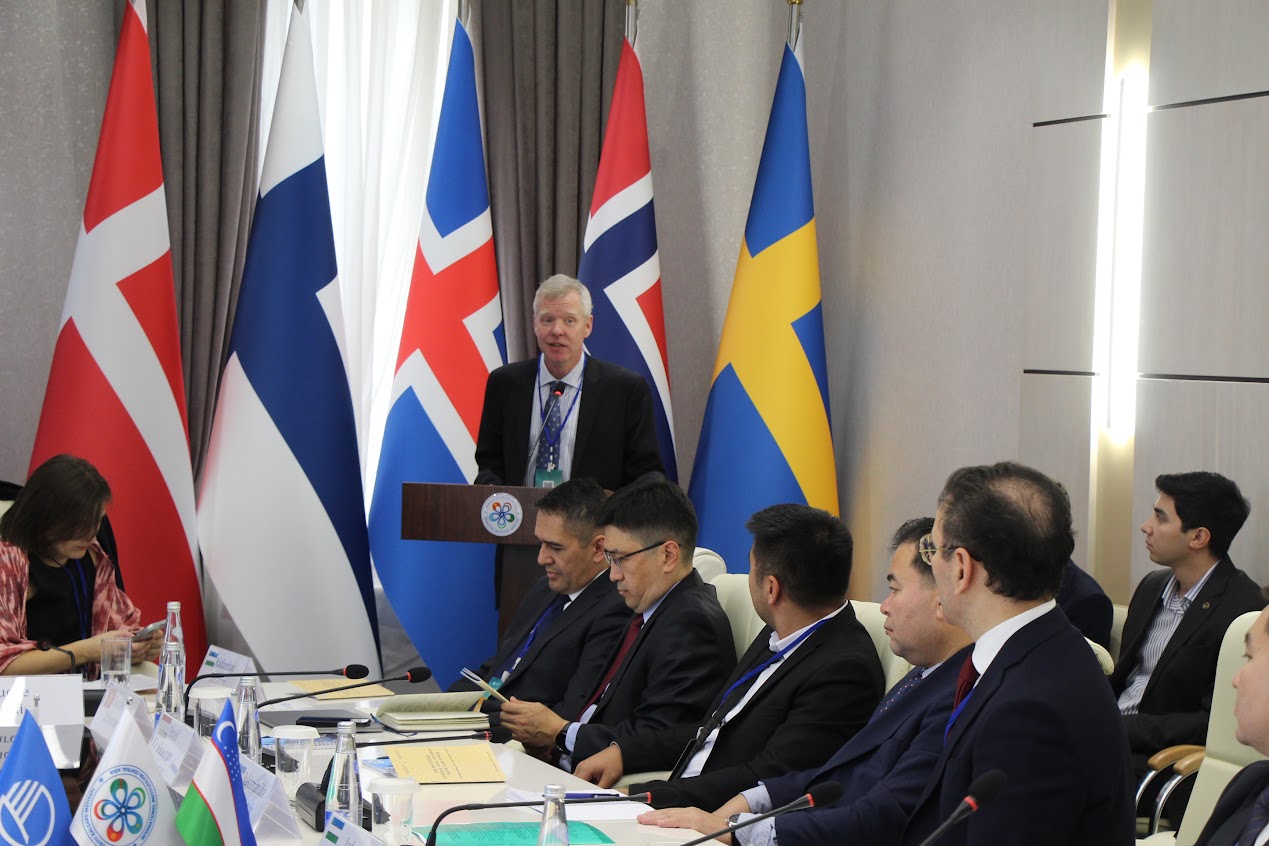
While Nordic countries have had diplomatic relations with Central Asian states for decades, the region has not featured prominently in the foreign policy of Nordic states. Yet the strategic importance of Central Asian states has been identified by the EU, which has rapidly ramped up the level and intensity of its interaction with Central Asia. Finnish President Alexander Stubb’s recent visit to the region suggests the same is happening in the Nordic states. Meanwhile, Central Asian states are expanding their diplomatic networks, and the Nordic region has become a priority for regional states. Kazakhstan and Uzbekistan have resident ambassadors in Stockholm, and Kyrgyzstan has appointed a Special Representative for the Nordic Region.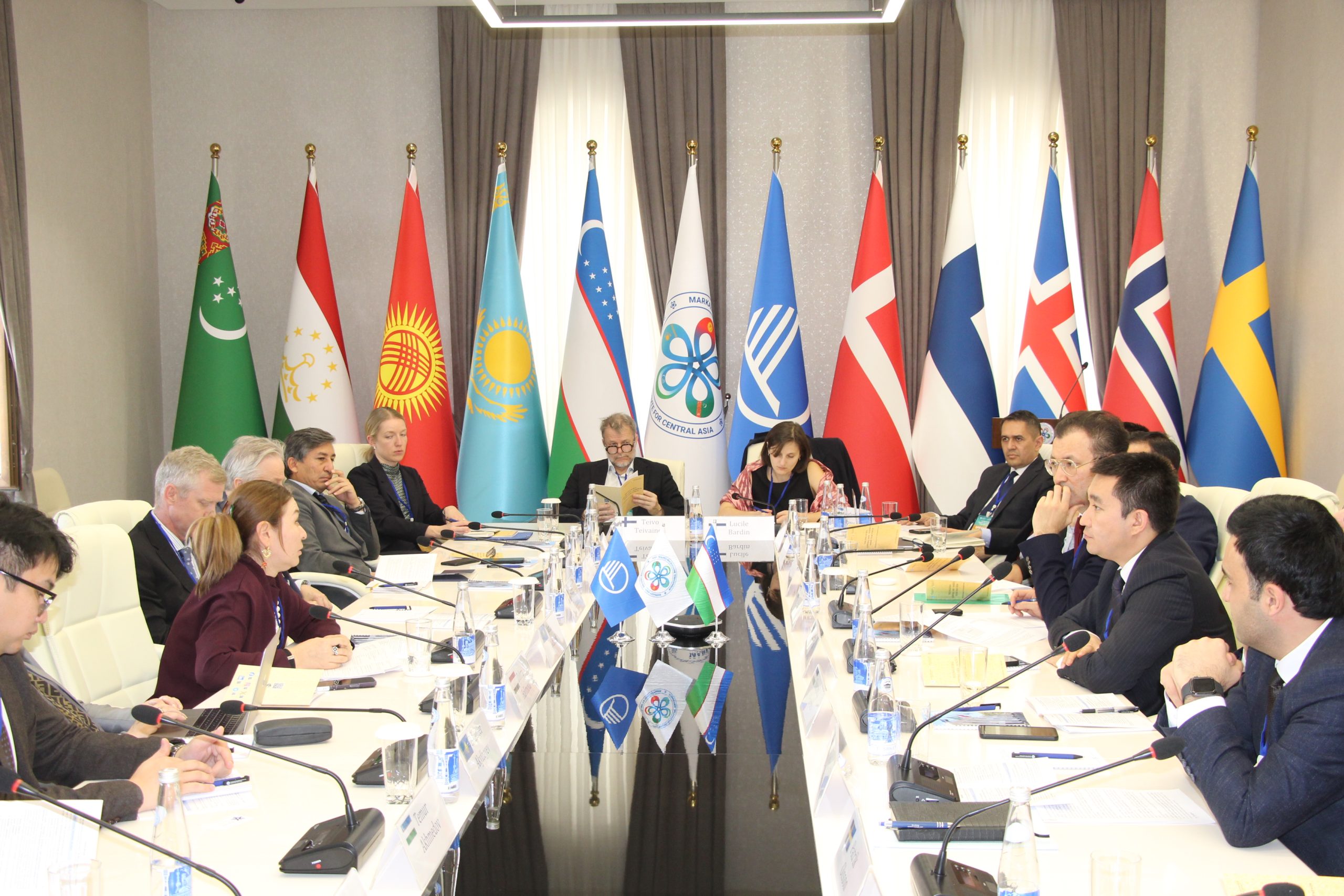
The establishment of the Central Asia–Nordic Council Think Tank Forum represents a timely and strategic step toward unlocking the potential of relations between these two regions. By bringing together leading experts and researchers from both regions, the Forum fosters knowledge exchange, policy innovation, and joint action on shared priorities such as sustainability, education, digital transformation, connectivity, and inclusive governance. Over time, this platform can serve as the intellectual engine for deeper, more systematic engagement, including future high-level summits and ministerial dialogues.
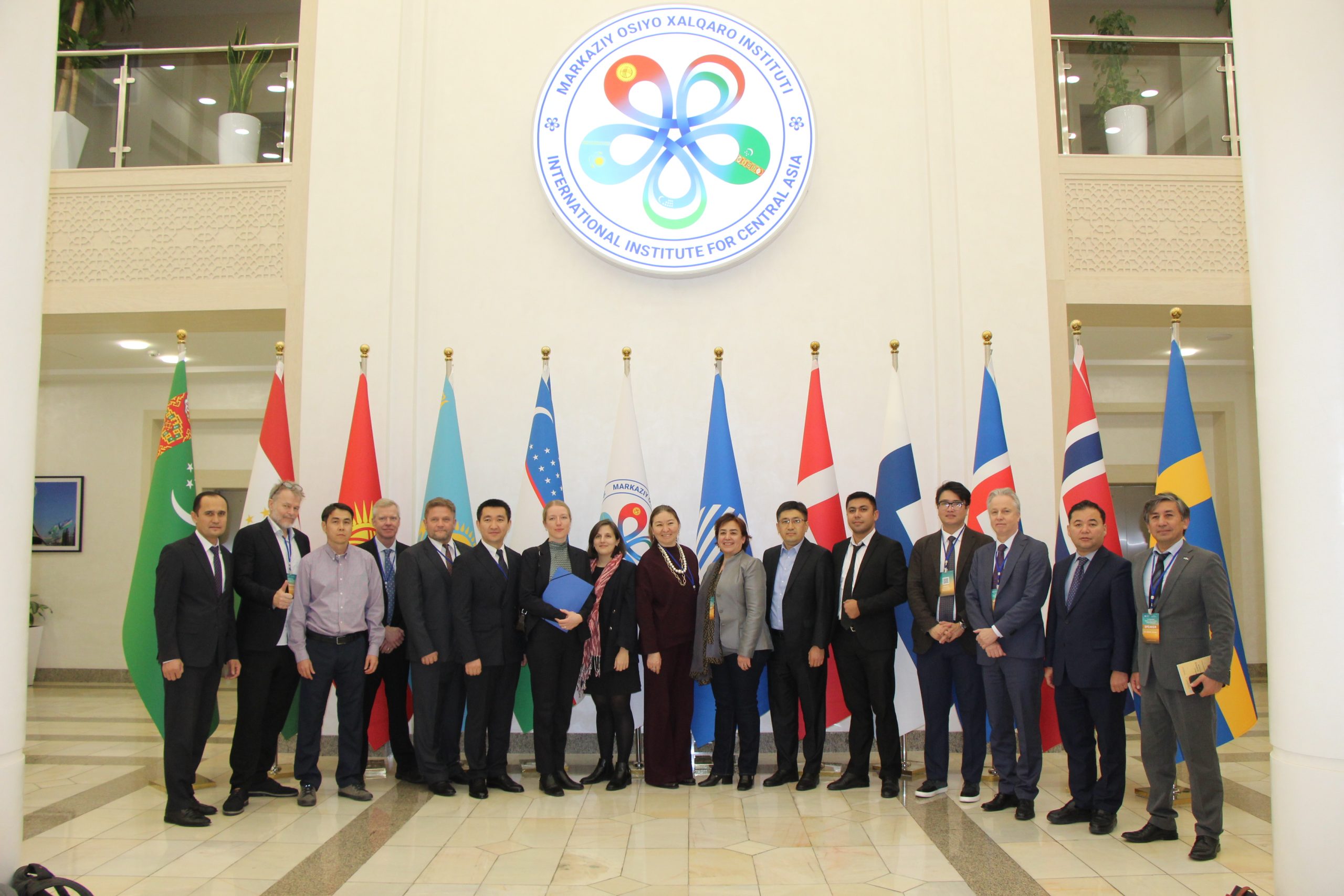
Through practical cooperation and the sharing of best practices, Central Asia and the Nordic countries can build a robust partnership—moving beyond dialogue to real solutions for sustainable development, resilient institutions, and shared prosperity.
Webinar: Small States in Russia's Neighborhood
The Central Asia-Caucasus Institute at the American Foreign Policy Council (AFPC) is excited to invite you to register for our upcoming webinar “Small States in Russia’s Neighborhood."
Register here!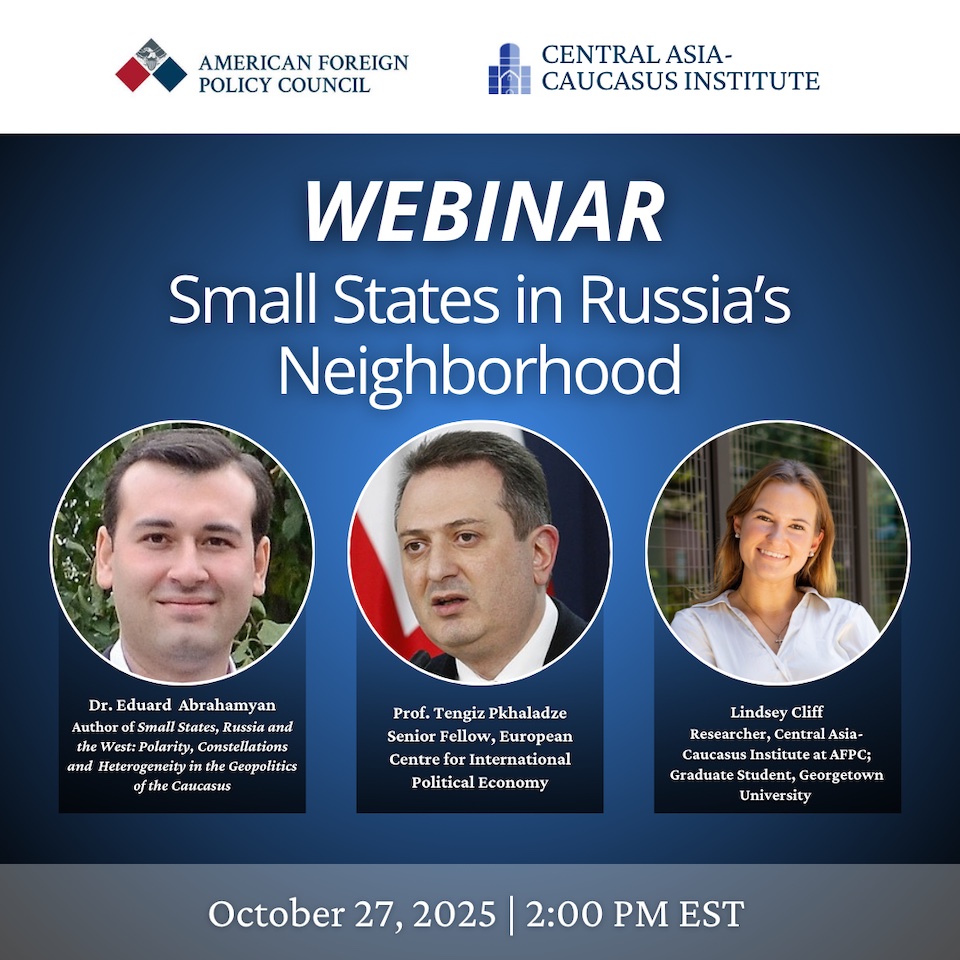
The webinar will cover Dr. Eduard Abrahamyan’s new book Small States, Russia and the West: Polarity, Constellations and Heterogeneity in the Geopolitics of the Caucasus. The book explores how small states in the Caucasus navigate intense great-power competition, particularly amid Russia’s resurgence as a regional power. Abrahamyan argues that these nations’ foreign policies reflect not only Russian or Western influence, but also their unique cultures, domestic power dynamics, and worldviews. Using an expanded Constellation Theory, he provides a fresh framework for understanding how non-Western regional orders form in today’s increasingly multipolar world.
Feature Speakers:
Dr. Eduard Abrahamyan is a Senior Research Fellow at the Yerevan-based Institute for Security Analysis and a Teaching Fellow in International Relations at University College London. He served as an aide to the President of the Republic of Armenia on foreign affairs from 2019 to 2021 and was a Rumsfeld Fellow in 2017.
He will be in conversation with Prof. Tengiz Pkhaladze, Professor at the Georgian Institute of Public Affairs and a Senior Fellow at the European Centre for International Political Economy. Previously, he was an Advisor and Foreign Relations Secretary to the President of Georgia. Dr. Pkhaladze previously served as Chairman of the International Centre for Geopolitical Studies (2008–2014).
Both Dr. Abrahamyan and Dr. Pkhaladze are former CAMCA (Rumsfeld) Fellows.
The discussion will be introduced by Lindsey Cliff, a Researcher at AFPC’s Central Asia-Caucasus Institute and a graduate student in Georgetown’s Center for Eurasian, Russian, and East European Studies.
Register here!
Purchase the book here!
Webinar Recap for A New Central Asia: From Past Attempts to Future Cooperation
The Central Asia Caucasus Institute recently convened a timely forum on the future of regional cooperation in Central Asia. The discussion featured Dr. Sanat Kushkumbayev, Ambassador Javlon Vakhabov, and Professor S. Frederick Starr, moderated by Dr. Svante Cornell. The session built on new CACI publications and looked ahead to the upcoming Central Asia Summit in Tashkent, with an emphasis on lessons from the past, the progress of recent years, and the path forward for integration.
Both Dr. Kushkumbayev and Amd. Vakhabov have recently published within CACI. To read Dr. Kushkumbayev’s work on the failed Central Asian Union of 1990-2005, click here. To read Amd. Vakhabov’s work on opportunities and challenges for Central Asia, please click here.
Watch the full discussion below or on YouTube.
Lessons from Earlier Attempts
Dr. Kushkumbayev highlighted the limitations of past integration projects in the 1990s and early 2000s. Efforts such as the Central Asian Union were hampered by divergent economic models, lack of political will, unresolved border disputes, and external pressures. Many initiatives remained confined to declarations without implementation. He emphasized that while early attempts faltered, they provide critical lessons for today, including the importance of practical outcomes over symbolism and the risks of rivalry between national leaders.
A Pragmatic Turn in Regionalism
According to Dr. Kushkumbayev, Central Asia is now entering what some call “integration 2.0.” Unlike earlier experiments, the new phase is rooted in pragmatism rather than ideology. Cooperation is being pursued through flexible consultative meetings and concrete projects in trade, transport, and energy. This shift marks a more cautious but sustainable approach, focused on building trust and delivering tangible benefits for citizens rather than constructing supranational bodies.
Progress and New Institutions
Ambassador Vakhabov underscored how recent years have brought real breakthroughs, including the settlement of sensitive border issues and advances in water and energy cooperation. Initiatives like the Treaty of Friendship and the adoption of a long-term regional cooperation concept signal deeper institutionalization. Under Uzbekistan’s chairmanship, priorities include connectivity, tourism development, energy collaboration, and people-to-people ties. While challenges remain—such as water scarcity, uneven infrastructure, and differing external alignments—the region is moving from problem-solving to collective action.
Reactions and Next Steps
Professor Starr praised the shift from coordination to consolidation, calling it a “dramatic change” after three decades of independence. He urged Central Asia to strengthen its institutions further, warning that without them the region risks “driving with the handbrake on.” He also raised strategic questions about expanding the group to a C6 by formally including Azerbaijan and about leading careful engagement with Afghanistan. Dr. Cornell added that while ad hoc cooperation has been effective so far, lasting progress will require stronger institutions that can shield regional initiatives from domestic politics and external pressures.



